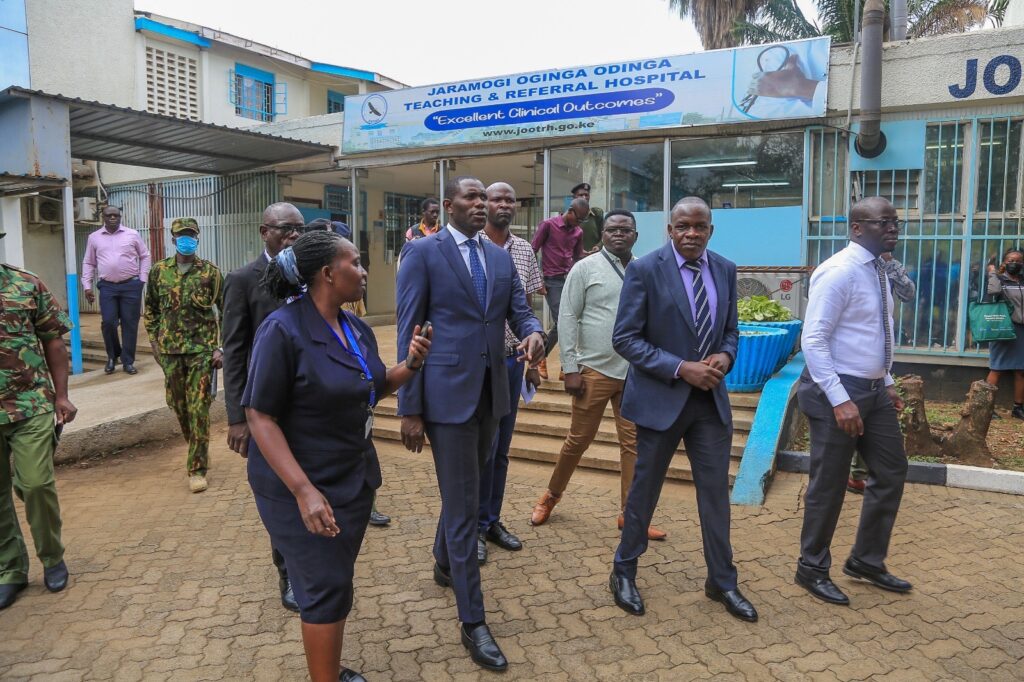Jaramogi Oginga Odinga Teaching and Referral Hospital (JOOTRH) has officially been elevated to a Level C5 parastatal, a classification previously reserved for public universities. This historic transition marks a new era for the institution, granting it both expanded privileges and greater responsibilities in shaping the future of healthcare.
The change signifies JOOTRH’s shift from county to national status, reflecting a broader reform agenda in Kenya’s health sector. While the formal transition is still ongoing, the hospital has been urged to adopt the mindset and discipline expected of a national institution. The elevation is intended to enhance the hospital’s prestige while creating an environment that attracts and retains highly skilled health professionals, ultimately improving clinical outcomes.
A critical part of this transformation involves financial sustainability. National referral hospitals are expected to gradually transition away from full reliance on Treasury-based funding over the next five years. JOOTRH will therefore need to innovate in revenue generation, focusing on research, grants, and specialized training. The hospital has been encouraged to initiate its own clinical research programs, moving beyond passive participation in externally funded projects. Grant-writing is also expected to become central to securing funding traditionally allocated to NGOs. Plans are underway to establish a state-of-the-art simulation centre, which will not only strengthen healthcare training but also serve as a revenue-generating hub.
In addition to financial reforms, the hospital is being called to adopt a people-first strategy. This approach emphasizes prioritizing the well-being of staff, patients, and the wider community. Stronger clinical governance will be required, with a focus on patient safety, patient experience, and clinical effectiveness. Beyond treating illnesses, JOOTRH is expected to strengthen follow-up care and outcomes tracking to ensure holistic recovery and dignity for patients.
The new direction also highlights the importance of preventive care and community engagement. By working closely with local communities to address the root causes of preventable diseases, the hospital can reduce the burden of avoidable admissions. Specialists and consultants have been challenged to mentor junior staff and contribute to capacity-building across the health system, ensuring long-term sustainability.
A new board will soon be inaugurated to provide strategic leadership, with the expectation that JOOTRH will become a true centre of excellence in healthcare, research, and community impact. This elevation sets the stage for a hospital that will not only serve the region but also redefine healthcare standards nationwide

